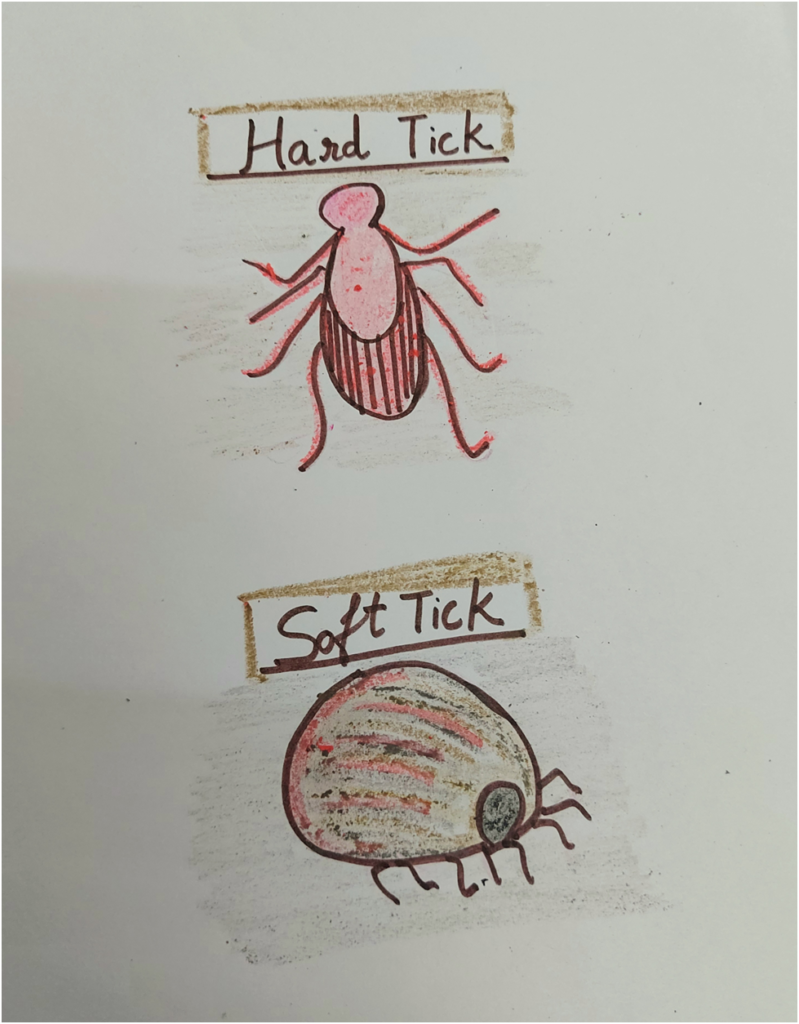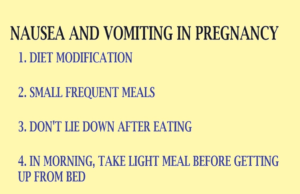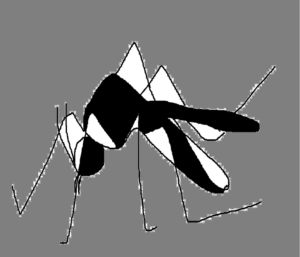WHAT ARE TICK BORNE DISEASES?
- BY DR. AK RANA
Tick borne diseases are caused by bacteria, virus and parasites but are transmitted by ticks. These ticks get infected with pathogens and transmit it by their bite.
Although it is difficult to notice a tick bite, but if taken care we can prevent it.
WHAT ARE TICKS?
They are of two types –
- Hard tick
- Soft tick
Hard tick
It has chitin on its exoskeleton.
Head is visible.
It stays on host all the time that is feeds all the time.
It dies once out of body.
Soft tick
Chitin is not present.
Head is not visible.
Nocturnal feeding (feeds at night)
It can starve for weeks/months.

TICK BORNE DISEASES
Hard Tick
- Tick typhus
- Tularemia
- Viral encephalitis
- Viral fever
- Viral hemorrhagic fever
- Babesiosis
Soft Tick
- Q fever
- Relapsing fever
- Kyasanur forest disease (can be caused by hard tick as well)
GENERAL SYMPTOMS
- Fever which can also be associated with chills.
- Headache
- Fatigue and muscle aches.
- Skin Rash
Rocky Mountain spotted fever
It is the most deadly tick borne disease.
It is bacterial disease that spread through the bite of an infected tick.
Powassan virus disease
Powassan virus is a flavivirus transmitted by tick and causes encephalitis.
Lyme disease
- It is caused by group of bacteria called Borrelia burgdorferi sensulato.
- Transmitted by hard tick
- It starts with the tick bite.
- Typical lesion called Erythema chronicum migrans (ECM) occurs at the site of bite.
- These lesions resolve in couple of weeks.
- Later on ECM like lesions occurs at multiple sites.
- These are associated with-
Arthralgia- Joint pain
Myalgia – Muscle pain
Fever
Generalized lymphadenopathy
- Neurological abnormalities like Encephalitis, Facial paralysis can also be associated.
Tick typhus
- It is caused by R. conorii
- Transmitted by Hard tick mostly.
- Dogs acts as reservoir.
- Associated with high grade fever with rash on 3rd-4th day.
PREVENTION OF TICK BORNE DISEASES
- While traveling to areas with potential tick habitat, it is required to avoid tick bites and use tick repellent.
- Areas with woods, bushes, high grasses are likely to have more ticks.
- Those who work outside are at greater risk of exposure to tick borne diseases.
- Ticks are more active in summer, spring and autumn or whole year in warmer regions.
- After coming home from such sites, it is advised to take shower and wash clothes, preferably with warm water.
- Clothes, boots and gear can be treated with 0.5% permethrin.
- While going out, proper clothing with minimal exposure and use of benzyl benzoate should be done.
ALSO READ HOW DO YOU KNOW IF YOU HAVE DIABETES?
ALSO READ DO I HAVE HYPOTHYROIDISM?
If you have any questions or you want to tell your story/views, kindly share in comments.
You can also contact our team at halleysclinic@gmail.com









You have observed very interesting points! ps decent internet site.Raise your business